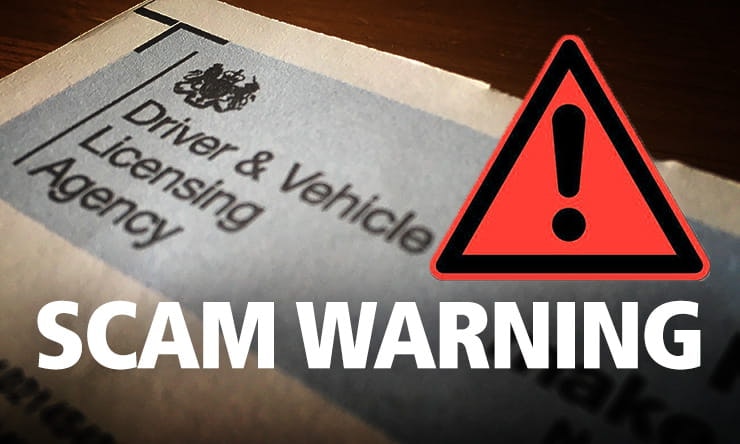SCAM WARNING: Bikers targeted by fake road tax texts
By Dr Ken German
Motorcycle Journalist and Ex Flying Squad
09.05.2018
Bikers and car drivers are being targeted by crooks using a new scam that promises a refund on their vehicle tax. Fake text messages are being sent from a source that purports to be the DVLA, informing people that they have overpaid and are due a refund.
Recent increases to Vehicle Excise duty have created an opportunity to cash in on any potential confusion, and as millions of owners are due to renew their tax, the fake messages can be tempting, the wording of one stating “We have recalculated your vehicle tax. You are owed £48.84 due to overpayment. Click the secure link to claim your refund.”
Other messages have slightly different wording, and some include a link with ‘dvla’ and ‘refund’ in the web address.
The DVLA stated that theses emails and texts are not from the government department, and owners should delete any such message they receive. The Driver and Vehicle Licensing Agency has also given guidance on its website for any owner who has received a potentially fraudulent message: “We don’t send emails or text messages that ask you to confirm your personal details or payment information, such as for a vehicle tax refund.”
If you do get anything like this, don’t open any links, then simply delete the email or text immediately. Only ever use the website GOV.UK so you can be sure that you’re dealing directly with DVLA.
How to avoid scams
• Never share images on social media that contain personal information, such as your driving licence, vehicle documents or post with your address on.
• Report any misleading adverts to the search engines and social media companies that you see them on.
• Keep your phone and web browsers up to date with the latest security patches.
• Do not give out any personal information (name, address, bank details or phone number) before first verifying that the person or business you’re dealing with is genuine.
• Check email and web addresses by clicking on the links to display them in full – it’s very easy to display a name that hides the true address.
• Never trust an email or text that asks you to confirm your details. If in doubt, delete the email then phone the business on a number you KNOW to be real (not one supplied in the message).
• Destroy any receipts with your card number on, as well as envelopes and other items with your name and address.
• If you get any bills or invoices for things you haven’t bought, contact your payment provider immediately.
• If something seems too good to be true, it probably is!
If you believe you’re a victim of a scam, report it to ActionFraud, the UK's national fraud and cybercrime reporting centre. You can also call on 0300 123 2040.
Share on social media:
